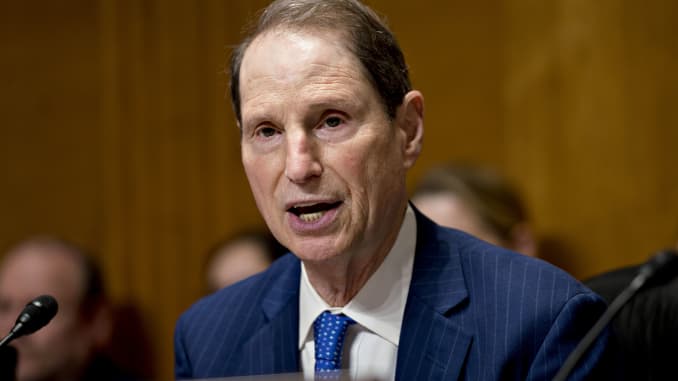8 March 2021, Senator Ron Wyden (D-OR) submitted a statement for the Congressional Record, addressing Bahrain’s crackdown on peaceful protestors on the 10th anniversary of the pro-democracy movement in Bahrain. Americans for Democracy & Human Rights in Bahrain (ADHRB) commends and supports Senator Wyden’s statement and the concerns that he raises.
Click here for the full text of the statement
10TH ANNIVERSARY OF PROTESTS IN BAHRAIN
Mr. WYDEN. Mr. President, 10 years ago Bahraini citizens joined many others across the Middle East in what became known as the Arab Spring, an eruption of popular protest and a call for reform and democracy that spread across the region. In Bahrain, the Arab Spring took the form of peaceful protest.
Families marched together and protestors gathered in Manama’s Pearl Roundabout urging the King to grant greater economic and political rights, particularly for Bahrain’s Shia majority. The King could have responded to these peaceful protests with dialogue or discussion. He did not. The regime deployed state security forces against the demonstrators, unleashing a wave of violence and repression. Journalists and human rights advocates documented the regime’s use of tear gas and rubber bullets against the unarmed crowds. Security forces beat a number of protestors and arbitrarily detained many more, targeting even the physicians who volunteered to tend to the wounded. Security forces shot one young protestor, Ali Mushaima, in the back, killing him.
Bahrain’s authorities made clear that day that they had no intention of conducting a meaningful dialogue or adopting significant reforms.
They have held to that position for the last decade. Even the Trump administration, which made no secret of its desire to downplay or overlook human rights abuses, documented in its most recent human rights report Bahrain’s ongoing “restrictions on freedom of expression, the press, and the internet, including censorship, site blocking, and criminal libel; substantial interference with the rights of peaceful assembly and freedom of association . . . restrictions on freedom of movement, including revocation of citizenship; and restrictions on political participation, including banning former members of al-Wifaq and Wa’ad from running as candidates in elections.”Bahrain has long been a valued security partner in a volatile region of the world. In addition, Bahrain hosts the Navy’s 5th Fleet. This is precisely why the United States needs to engage Bahrain on these issues and to encourage reforms.
If Bahrainis come to associate the United States with their government’s cruelty and repression, this security partnership could become much less reliable. If the Monarchy were overrun by Bahrainis who had come to hate the United States due to our inaction in the face of gross human rights abuses, what would happen to our military base and the thousands of Americans who live in the country? It is a question I think we would all rather not have to answer.
Mr. President, the Arab Spring of 10 years ago has long since given way to an Arab Winter in Bahrain and across much of the Middle East. In 2011, tens of thousands of Bahrainis took to the streets with hopes of a more inclusive and representative society. They are sadly still waiting for those hopes to be realized.I am heartened that President Biden and Secretary of State Blinken have already taken steps to reprioritize human rights as a cornerstone of U.S. foreign policy. That must include working to hold our adversaries accountable but also speaking hard truths when allies lose their way.
It is with this in mind that on the 10th anniversary of the Arab Spring, I call on the Biden-Harris administration to urge Bahrain’s King to release political prisoners, including human rights defenders and members of the political opposition, and to engage them in a credible dialogue about a more inclusive future for all Bahrainis.





